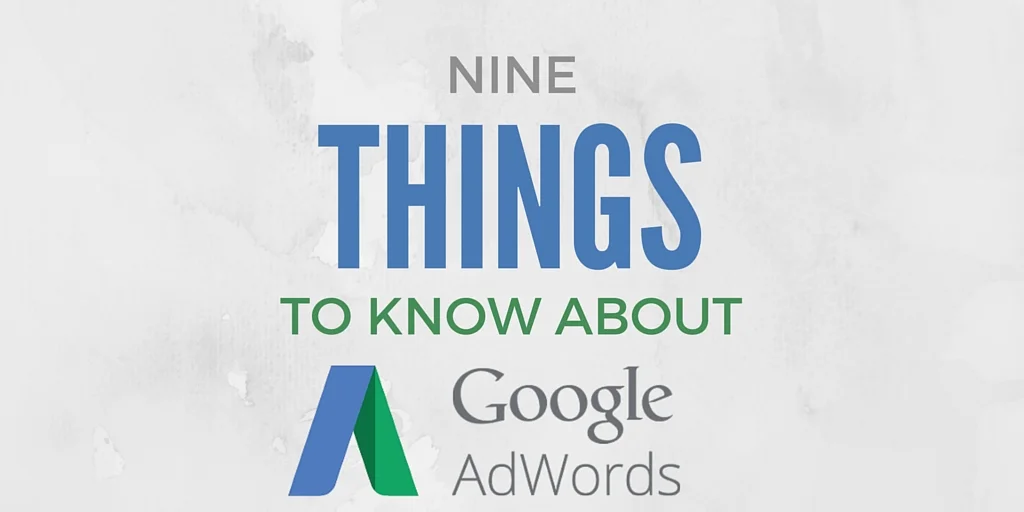Whether you’re an AdWords novice or have been Google certified for years, there is always something new to learn in the world of search marketing and advertising. Today we’ll explore some basic AdWords training principles to incorporate into your healthcare marketing strategy, so you’ll be more prepared for conversations with your team about your paid search strategy.
The 9 Things You Should Know About Google AdWords:
1. CPC/PPC vs. CPM
CPC (cost-per-click) and PPC (pay-per-click) are terms that can be used interchangeably and mean that your bid-strategy is to pay Google only when people click on your ads. You can also choose to take the CPM (Cost-Per-Thousand impressions) bidding approach which determines your costs based on how many times your ads are shown. CPC is more common and helps give you a better indication of your ROI.
2. Keyword Planner
Google offers a FREE keyword planner tool for all Google AdWords users. You can use this to determine search volume of certain keywords, estimate competition and average bids along with helping you come up with more appropriate keywords for your campaigns.
3. Difference between Ad Campaigns and Ad Groups
Ad Campaigns can have multiple Ad Groups underneath them. Think of Ad Campaigns as the different service lines for your practice (ex: Women’s Imaging or Diagnostic Imaging for a radiology center) and think of Ad Groups as the specific services or modalities that fall under those campaigns (ex: Mammograms and Ultrasounds).
4. Negative Keywords
You can add negative keywords to your campaigns, which indicates to Google that you don’t want your ads shown when people search for certain terms that might be similar to your terms. For instance, let’s say you are using the keywords “diagnostic imaging centers” and “imaging centers” but someone typed into Google “imaging services” they will get results for imaging centers and also digital printers, so you’d want to add “digital imaging” as a negative keyword.
5. Branded Keywords
When you create an ad campaign for branded keywords, that means ads will show up when someone searches the name of your practice. It might seem counter-intuitive since you’re already coming up 1st organically, but it’s still beneficial to own that real estate. It helps contribute to your overall ad rank if you’re converting well on your branded terms, but keep in mind you don’t have to budget as much for these campaigns.
6. High Search Volume with Low Competition
It’s a good idea to focus on keywords that have higher search volumes and lower competition. This won’t always seem like a good approach from the get go, but if you do well with converting lower competition terms, you’ll be in a stronger place when you start bidding on more competitive terms.
7. AdWords Certifications
Anyone can become AdWords Certified through Google and it doesn’t cost anything. Always ask your paid search team if they are certified. It doesn’t take much to do so. First, you take the AdWords Fundamentals exam and then you choose to take either the Search, Display, Mobile, Video or Shopping Advertising exam. Once you pass both, you’re officially certified. Side Note: There are tons of free study guides online and through Google.
8. Search Network vs. Display Network
These are kinds of campaigns; “Search Network Only” means that your ad will only show up on Google, “Display Network Only” means your ad will only show up in Google’s Display network of websites and videos, including YouTube and Blogger. “Search Network with Display Select” is a combo, which enables your ads to show up in both scenarios.
9. Ad Rank vs. Quality Score
Your AdWords’ ad rank is the grade that determines in where your ad is displayed on a search results page. Your ad rank can fluctuate based on your bid amount and the quality score Google has given to your ads. Quality score is measured by your ad’s headline, description, destination URL, relevancy and the keywords you’ve chosen. If you have a higher quality score for your ad you could end up paying less per click since Google has determined that you’re providing valuable information for their searchers.
Learn more about Google AdWords by reaching out to the members of our paid search team and by checking back for more blog posts about paid search and healthcare search engine optimization tactics.

